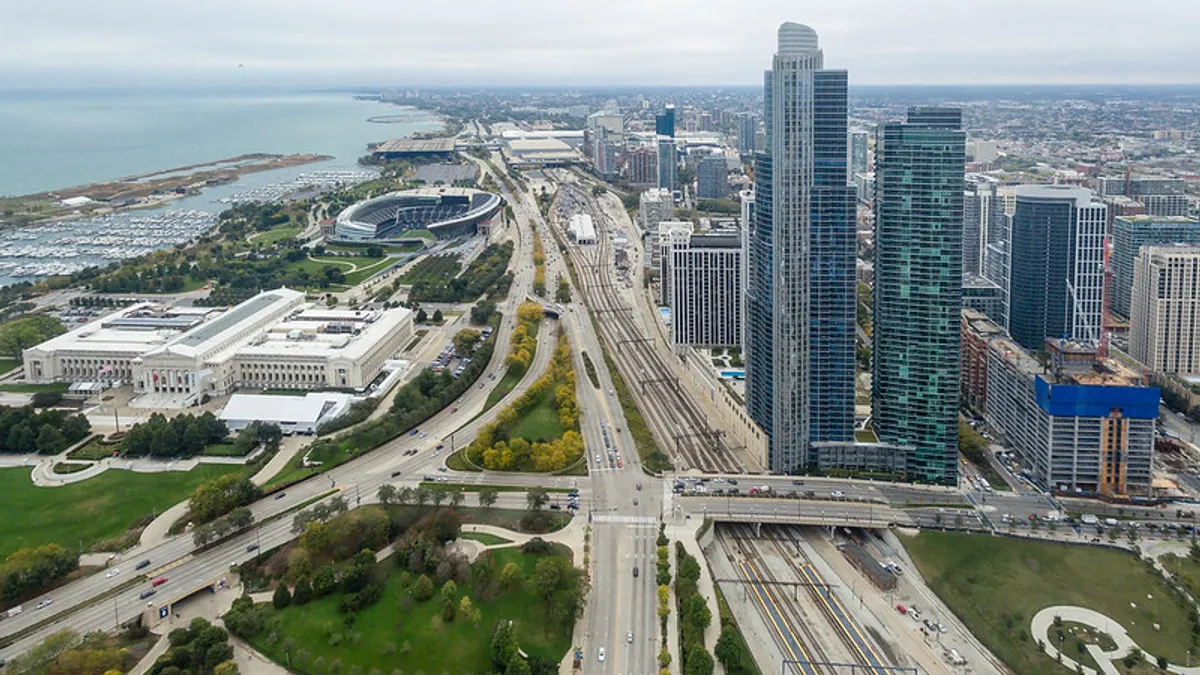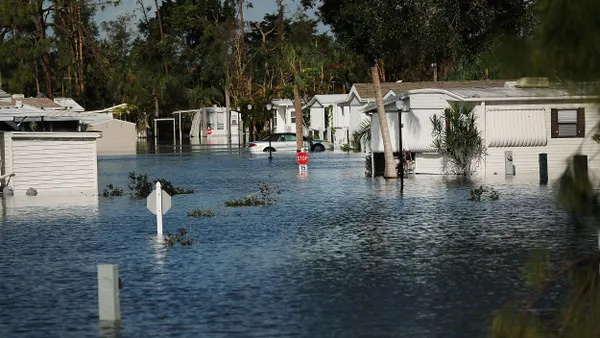Dive Brief:
- Chicago Mayor Lori Lightfoot announced Monday the creation of a citywide air quality reform agenda, which will aim to improve the city's air quality while promoting equitable economic growth.
- The agenda is driven by data from the Department of Public Health's Air Quality and Health Report, which found that issues including ozone and air particulates are a problem citywide, but disadvantaged communities are more likely to experience worse health outcomes than others. That report's data helped improve the city's environmental inspection and enforcement by prioritizing communities most affected by pollution and strengthening the permitting process for industries most responsible for that pollution.
- The new air quality agenda will also change the city's zoning code to amend where manufacturing and other polluting sites can be located, in a bid to keep them separated from homes and some businesses. Additionally, the city will change its rules around industrial operations that produce air pollution and strengthen enforcement.
Dive Insight:
This new agenda comes just over a month after Chicago appointed Angela Tovar as its new chief sustainability officer, in an effort to create a more inclusive economy and equitable environmental policy agenda that addresses racial disparities. Lightfoot said in a statement that this new initiative will further those efforts and advance the city’s objective of "creating a healthy, equitable, economic environment."
Tovar echoed these thoughts. "We can, and we must, find a way to mitigate the pollution issues faced by our most environmentally overburdened and historically underserved communities and work to improve our environment overall," she said in a statement.
As part of the new air quality agenda, the city also plans to create an Environmental Equity Working Group. Officials say the group will contain "world-class expertise and community voices" to help further the cause of environmental justice throughout Chicago. The move also comes just weeks after the city reformed its large recycling rules to require recyclers to mitigate dust and pollution, and monitor air and noise quality at their facilities.
The agenda takes on extra importance with the city looking to reduce its greenhouse gas emissions (GHG) 26-28% from 2005 to 2025, especially as those emissions can cause more health problems for disadvantaged communities. In a statement, Alderman George Cardenas, who represents the city’s 12th Ward on the Southwest side, noted that his community has been exposed to air pollution due to heavy industrial activity and trucking that goes on around the clock. He added that the city has a "moral obligation to reduce health disparities across minority communities."
But despite the progress that these reforms represent, some environmental advocates are still calling into question recent decisions within the city. The Illinois Environmental Protection Agency, for example, recently approved a permit for metal scrapper General Iron to move from a wealthy and predominately White neighborhood to the city's primarily Black and Latino Southeast Side. The planned move was met with major opposition from environmental advocates and is a recent example of the city's "systemic racism," WTTW reports.
General Iron must file an application for a permit with the city before it can move.












